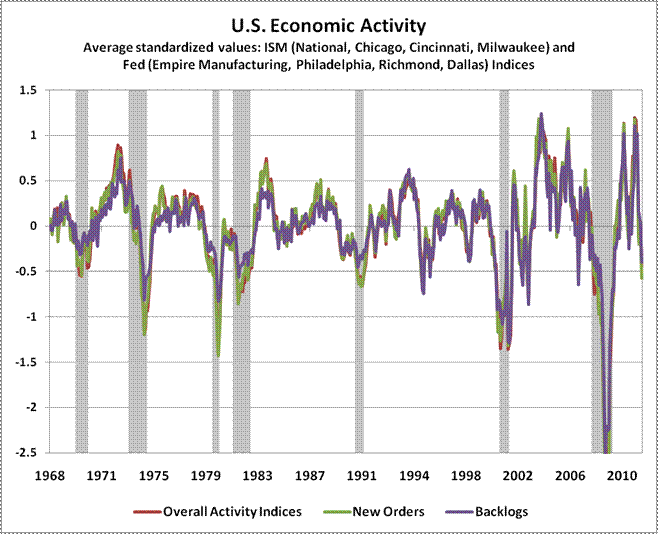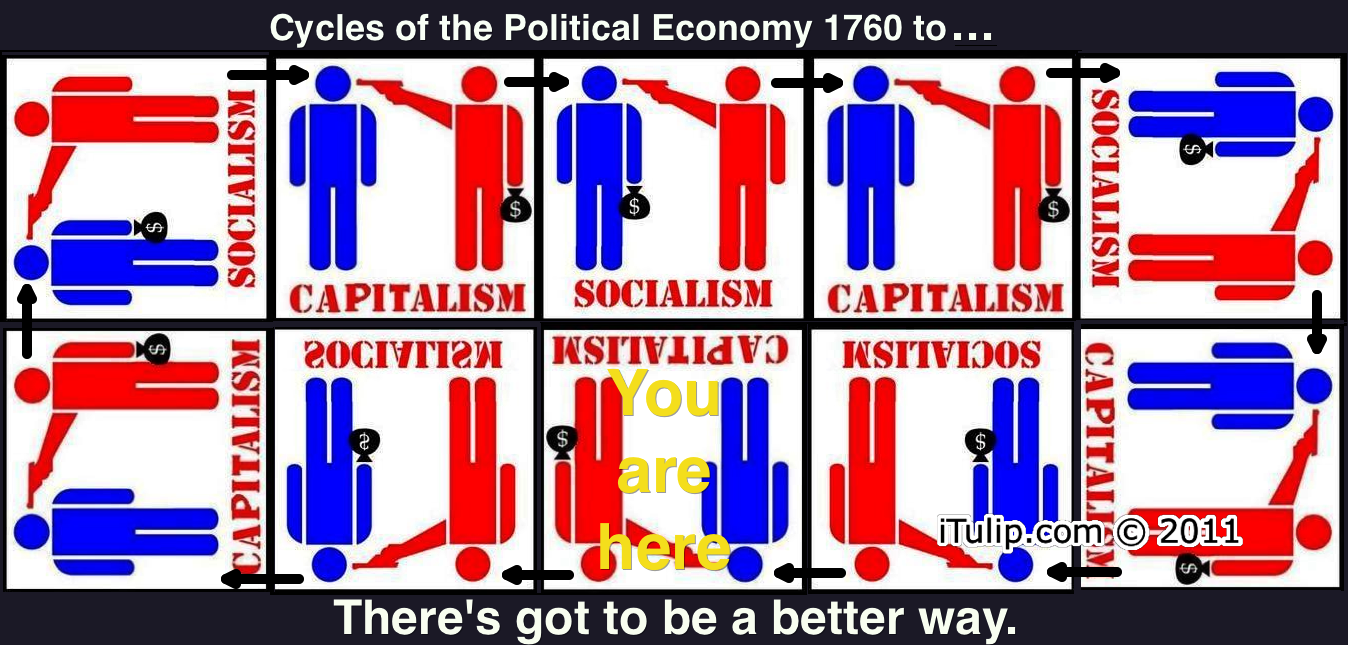http://www.hussmanfunds.com/wmc/wmc110808.htm
"I began drafting this update in a fairly measured way, but on further reflection, I think it is time to be blunt. The economic evidence now suggests that the U.S. and the global economy are again entering recession."
"Last week, I reviewed the rapidly deteriorating condition of our Recession Warning Composite . While year-over-year GDP growth has dropped to just 1.6% - a rate that has been followed by a new recession in 10 of the 12 times it has occurred since 1950 - I preferred evidence from a wider set of market and economic measures. I noted "we would require only modest deterioration in stock prices and the ISM index to produce serious recession concerns." With the pixels barely dry on that weekly comment, the ISM reported Monday that its Purchasing Managers Index dropped unexpectedly to 50.9, the slowest pace in two years. That report, coupled with an early slide in the S&P 500, completed the remaining holdouts (conditions 2 and 3) of the Composite. Coupled with the slowdown in year-over-year GDP growth, the composite of economic and financial evidence we presently observe has always and only been associated with ongoing or immediately impending recessions. This is not an opinion or a viewpoint, but a fact of the data. "Always and only" is the Bayesian equivalent of "certainty" (a Bayesian is someone who, vaguely expecting a horse, and glimpsing the tail of a donkey, concludes he has probably seen a mule)."
"I began drafting this update in a fairly measured way, but on further reflection, I think it is time to be blunt. The economic evidence now suggests that the U.S. and the global economy are again entering recession."
"Last week, I reviewed the rapidly deteriorating condition of our Recession Warning Composite . While year-over-year GDP growth has dropped to just 1.6% - a rate that has been followed by a new recession in 10 of the 12 times it has occurred since 1950 - I preferred evidence from a wider set of market and economic measures. I noted "we would require only modest deterioration in stock prices and the ISM index to produce serious recession concerns." With the pixels barely dry on that weekly comment, the ISM reported Monday that its Purchasing Managers Index dropped unexpectedly to 50.9, the slowest pace in two years. That report, coupled with an early slide in the S&P 500, completed the remaining holdouts (conditions 2 and 3) of the Composite. Coupled with the slowdown in year-over-year GDP growth, the composite of economic and financial evidence we presently observe has always and only been associated with ongoing or immediately impending recessions. This is not an opinion or a viewpoint, but a fact of the data. "Always and only" is the Bayesian equivalent of "certainty" (a Bayesian is someone who, vaguely expecting a horse, and glimpsing the tail of a donkey, concludes he has probably seen a mule)."



Comment